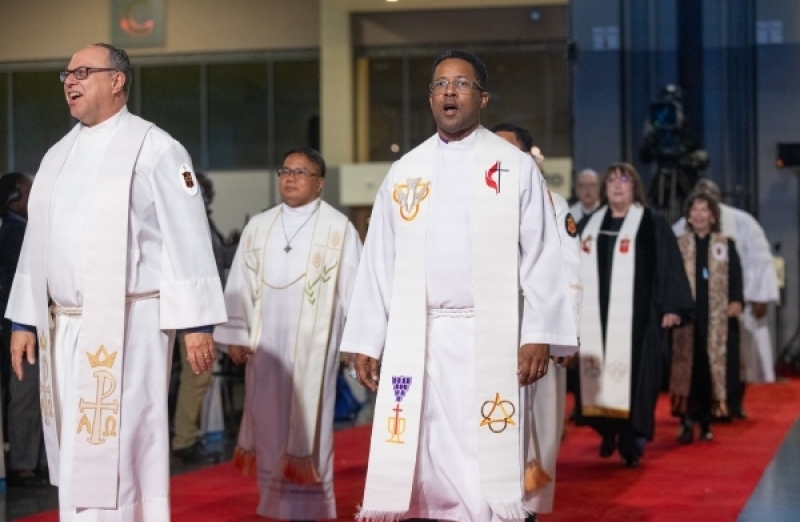
The United Methodist Church’s highest court has ruled that congregations wishing to leave the denomination over theological disagreements cannot utilize a church closure provision to do so.
On October 26, the United Methodist Judicial Council issued a ruling known as Decision Number 1512, clarifying that congregations may not exit the UMC via Paragraph 2549.
The decision highlighted that the UMC’s Trust Clause, which asserts that all church properties are held for the benefit of the entire denomination, cannot be overlooked by using Paragraph 2549 for disaffiliation.
“Connectionalism is a bedrock principle of United Methodist constitutional polity, and the Trust Clause is its foundational element,” the ruling stated. Additionally, it noted, “Disaffiliation is a radical departure from connectionalism, and, therefore, church property can be released from the Trust Clause only to the extent authorized by Church law.”
The Judicial Council further clarified that Paragraph 2549 “cannot be construed or used as legislation permitting the ‘gracious exit’ of local churches because it applies to church closure and the sale of property, not disaffiliation.”
The ruling continued, “Paragraph 2549 does not give an annual conference disciplinary authority to close a local church and then provide all of the assets to the exiting congregants.” It emphasized that “Paragraph 2549 is not an appropriate provision of the Discipline for exiting with property. The provisions of 2549 do not align with what is being asked for, which is ‘disaffiliation’ and asking that the trust clause be broken.”
This ruling arose from an official inquiry by the UMC Kentucky Conference and the UMC Alabama-West Florida Conference. Following the Judicial Council’s decision, the Kentucky Conference expressed in a statement on Tuesday that it is “unable to offer a path to separation from the United Methodist Church for local churches.”
For decades, the UMC has grappled with changing its rules concerning the blessing of same-sex unions, the ordination of noncelibate homosexuals, and the financial support of LGBT advocacy groups, eventually making such changes at the General Conference earlier this year.
In February 2019, delegates at a special session of the General Conference voted to add Paragraph 2553 to the Book of Discipline, which provided a process for congregations to exit the UMC amid the sexual ethics debate.
However, this measure expired at the end of 2023. Despite this expiration, approximately 7,500 congregations disaffiliated from the UMC, with many continuing to leave via Paragraph 2549, which pertains to church closures.
According to the measure, a district superintendent may recommend the closure of a local church if it “no longer serves the purpose for which it was organized or incorporated.” Subsequently, conference leadership can declare the property closed and “retain, sell, lease, or otherwise dispose of the property of a closed local church in accordance with the direction of the annual conference, if any.”

















